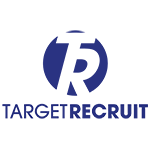With so many fit for purpose recruitment tech solutions available now, why would anyone build their own? But if everyone is using the same solutions, how do you differentiate?
Recently, TargetRecruit and the team at TALiNT Partners hosted a Dinner & Debate for some of the best CTOs and CIOs from our staffing and talent solutions leader network on the topic of ‘build vs buy and why’.
We explored different perspectives, including what recruiters who build or buy gain or give up; how client, candidate and consultant expectations have changed; and which tech strategy best supports this evolved demand. We also explored the implications from an M&A and valuation perspective.
The event was co-hosted with experts from TargetRecruit and Salesforce who were able to share a breadth of insight from recruitment clients all over the world.
The tech leaders who joined the debate represented market leaders including Frank Recruitment, TekWissen, Robert Walters, NHS Professionals, HRGO, ManpowerGroup, Page Group and Rullion.
Having seen the impact of tech & data in retail, hospitality, finance and property before coming to the staffing sector, what was their consensus on whether to build or buy a recruitment tech stack?
“The key point is where you are on your journey and how big you are,” observed Mark Hill, CIO of Tenth Revolution which owns Frank Recruitment Group. “When we made the decision to build on the Salesforce platform in 2017, the CRM recruitment market was not as mature as it was now, and the choice for truly scalable and modern recruitment CRMs was limited. Our own need for more control led us to the decision.
“Today there is much greater choice. If you are small then you should probably still buy pure SaaS, but if you are big you have more choice. You could adopt a hybrid solution buying a SaaS product from the likes of feature-rich ATS’: TargetRecruit or Bullhorn, both built on Salesforce, but you still retain the flexibility to go ‘off-piste’ as-and-when you require. For a lot of large global recruiters, like us, this is extremely important.”
“Build or buy isn’t binary and there is no one-size-fits-all for any organisation,” added Dave Callow, CIO of NHS Professionals, who is integrating a combination of solutions for its flexible workforce platform. “Building and augmenting is like building an entire housing estate. Salesforce is great for foundations while an ATS supplier is great for everything on top of that.”
“I would only build if we were 100% a tech company, but even building your own means you’re still beholden to certain platforms like Oracle and Microsoft,” he added. “We don’t want to be too unique to ourselves so we can integrate solutions that support our core aim – more people in front of more patients better able to do their jobs.”
Most agreed that bespoke is an expensive option that must be considered over the long term and with a careful balance of risk and reward.
“Custom-building from scratch has previously been an option for established recruitment agencies, due to the lack of functional overlap offered by an existing off the shelf product,” observed Chris Jordan, CTO of TargetRecruit, whose comprehensive ATS is part of the Salesforce ecosystem of integrated apps. “This option is one to be approached with much caution and awareness of the additional complexity, risk and increased cost.
“What we’re seeing now is the ability to buy and then configure or customise an ATS, offering the quickest speed to value and lowest risk approach for recruitment agencies.”
Dominic Dow, CTO of Robert Walters Group, has seen early signs of success with this approach. “We own it, and we can pivot quickly if needed,” he explained. “Our consultants love it and it’s been an exciting project that has helped us to attract and retain our own tech talent. Our regions that have adopted the new platform have continued to be successful and expect, as new features are developed, we can truly support business growth and efficiency.”
Everyone agreed that buy-in from consultants is vital as they determine whether it’s a success or not. “Our ten-year business case is designed around the needs of consultants not revenue targets because they are the people who we need to stay and keep driving profitable growth,” added Dominic.
The candidate should also be at the heart of any recruitment tech solution. “Candidate experience is the most important consideration and yet they’re often not the main focus when building platforms and are still having to follow a protracted process, jumping through multiple hoops and submitting unnecessary information,” said Graham Hewitt, Head of Solutions, Innovation and Bid and ManpowerGroup.
But is this because candidate experience hasn’t been a big enough priority for employers with the over-supply of talent pre-Covid? In a post-pandemic, post Brexit talent economy, it has certainly become a differentiator and an opportunity for recruiters to deliver more value.
“We built a bespoke ATS at HRGO to differentiate because it allowed us to go to clients and offer them a more tailored service,” said John Parkinson, CIO of HRGO.
TALiNT Partners’ benchmark of talent solutions providers last year revealed that what their clients value most is advice on the assessment and deployment of talent followed by employer brand and candidate experience.
“The advisory role of RPO is getting stronger which is creating great opportunities,” said James May, Executive Director of TekWissen. “The problem recruitment tech still needs to solve is a true end-to-end process from initial hiring need to placement. There are so many processes and platforms, but they need to plug in and integrate with all of our clients’ systems, otherwise there will always be a degree of duplication and manual processes still in play for the recruiters and the end client stakeholders”. “Solutions on the Salesforce CRM are now proving this is possible”, added David Holmes, Salesforce go to market lead.
A major barrier to integration and orchestration of candidate matching and experience is that CVs aren’t standardised, and the majority don’t know how to promote their skills and experience in the right way. “If language isn’t fitting into the algorithms, AI can’t find the right people or match them with the right role,” said Vincent Van Maasdijk, Partner at Noon Dalton.
Bright Network has developed its own proprietary data solution to address this problem and match graduates with the most relevant employers and career opportunities. “Capturing relevant information from psychometrics, interests, work experience and aspirations helps us to pre-qualify candidates and match with the right jobs,” explained Founder & CEO James Uffindell. “All of these problems can be solved by finding and utilising the right data to achieve personalisation at scale.”
Whilst the majority agreed that build was expensive and risky, the overall consensus was that the answer to the question is not why to build or buy but how and when to do both. “Custom build for a custom problem,” said Dave Callow from NHS Professionals, who added that a proprietary addition to off the shelf solutions can differentiate if it’s solving the right problem.
“It was fantastic to hear resounding agreement, in a room of such highly-regarded tech leaders, that purchasing a system like ours to build on and bespoke is the way to go for growing agencies,” said Neil Curry, Sales Manager, UK & EMEA at TargetRecruit. “Those that have built an ATS from the ground up have done an amazing job – and have some serious organisational skills behind them – but not all businesses, even enterprise, can always pull that together.”
To find out more about TargetRecruit and how buying a strong software with the ability to build out could help you, get in touch today!





